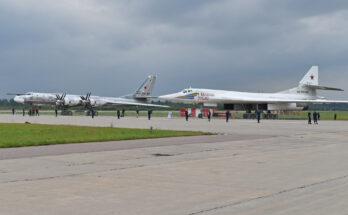The Turkish government has selected three local companies to head its indigenous long-range air and missile defense system “Siper” (“Ditch” in Turkish) project. The Turkish companies spearheading the initiative include military electronics specialist Aselsan, missile-maker Roketsan, and Tubitak Sage, a defense specialist that is part of Turkey’s state scientific research institute. Both Aselsan and Roketsan are state-owned entities, thus ensuring the entire project falls under the government’s purview.
The indigenous long-range defense project emerged from the ashes of the so-called Turkish long-range air and missile defense system (T-LORAMIDS) program launched by the state procurement agency the Undersecretariat for Defense Industries (SSM) on March 1, 2007.
At the time Turkey’s principal concerns for air defense involved Iran’s missile development projects and attempts to attain nuclear warhead breakout capability. Turkish officials therefore began examining options for a long-range air- and missile-defense system that would provide protection for strategically crucial infrastructure against medium-range ballistic missiles.
The Siper project also follows the decision by Ankara to opt for the Russian-made S-400 Triumf air defense system in 2017. That decision proved divisive for Turkey’s NATO partners, particularly as Ankara was offered workable American- and European-sourced alternatives in the Patriot and Eurosam Aster 30 SAMP/T (sol-air moyenne portée terrestre or surface-to-air medium range/land) but instead chose a system that cannot be integrated into NATO’s own Alliance-aligned air defense network.
After originally declaring its intention in September 2013 to go with a Chinese offer of the HQ-9 (FD-2000) from China Precision Machinery Import/Export Corp (CPMIEC), Turkey – under pressure from its NATO allies – instead announced in 2015 that it had dropped the $3+ billion project and would shop for a short-term bridge solution while working to develop its own indigenous solution as a long-term fix.
The ultimate selection of the Russian S-400 has proven particularly grating to U.S. officials, who fear that Turkey might use its procurement of the new-generation F-35 Lightning II combat aircraft from Lockheed Martin to test the fighter’s stealth capabilities against the air-defense system. Such data might be shared with Russia, a possibility that naturally elicits concerns in U.S. security-planning circles. Furthermore, Russian contractors sent to support the installation and early operation of S-400 batteries in Turkey present an intelligence-gathering threat to U.S. interests, including once again information on the F-35.
NATO partners, meanwhile, fear that in the event of a crisis the standalone S-400 will not be able to act in concert with Alliance systems.
But these concerns have fallen on deaf ears as Turkey’s strongman president, Recep Tayyip Erdogan, charts an independent course for the country and pushes indigenization defense industrial efforts whenever possible. In addition, Russia’s favorable financial terms (50 percent of the up-front costs on the $2.5 billion purchase will be covered through low-interest loans floated by Moscow) made the choice of the S-400 easier for Ankara.
With the S-400 providing a near-term solution for Turkey’s long-range air and missile defense needs, Ankara sought to meet a long-term requirement by opening up a parallel initiative between Aseslan and Roketsan with the Franco-Italian Eurosom consortium to research, develop and coproduce a Turkish variant of the Aster-30 SAMP/T.
Thus emerged the Siper project, which looks to pick up steam in 2019-2020 following completion of an upcoming 18-month definition study with Eurosam for the indigenous long-range air and missile defense system.
The aim is to achieve first deliveries of the new air defense system to the Turkish Air Force by the end of 2021.
Turkish Defence Minister Hulusi Akar: “Turkey to begin installing S-400 system in October 2019”: https://t.co/cVykzdfpV8 pic.twitter.com/bEBGpAlrYH
— Defence and Technology (@SavunmaTekno) October 30, 2018
Meanwhile, deployment of the S-400 systems is to begin in October 2019.
Dan Darling is Forecast International’s director of military and defense markets. In this role, Dan oversees a team of analysts tasked with covering everything from budgeting to weapons systems to defense electronics and military aerospace. Additionally, for over 17 years Dan has, at various times, authored the International Military Markets reports for Europe, Eurasia, the Middle East and the Asia-Pacific region.
Dan's work has been cited in Defense News, Real Clear Defense, Asian Military Review, Al Jazeera, and Financial Express, among others, and he has also contributed commentary to The Diplomat, The National Interest and World Politics Review. He has been quoted in Arabian Business, the Financial Times, Flight International, The New York Times, Bloomberg and National Defense Magazine.
In addition, Dan has made guest appearances on the online radio show Midrats and on The Media Line, as well as The Red Line Podcast, plus media appearances on France 24 and World Is One News (WION).




